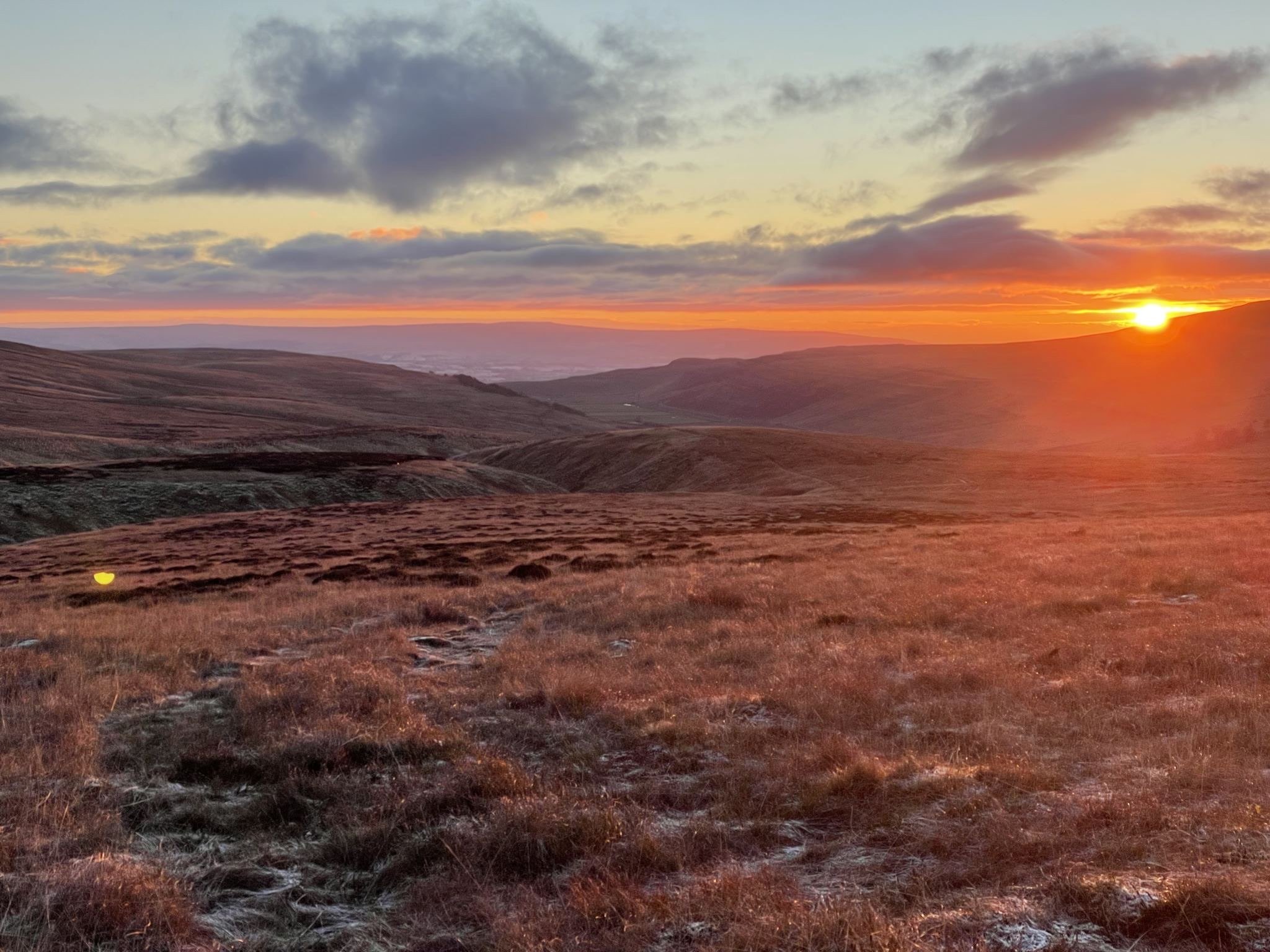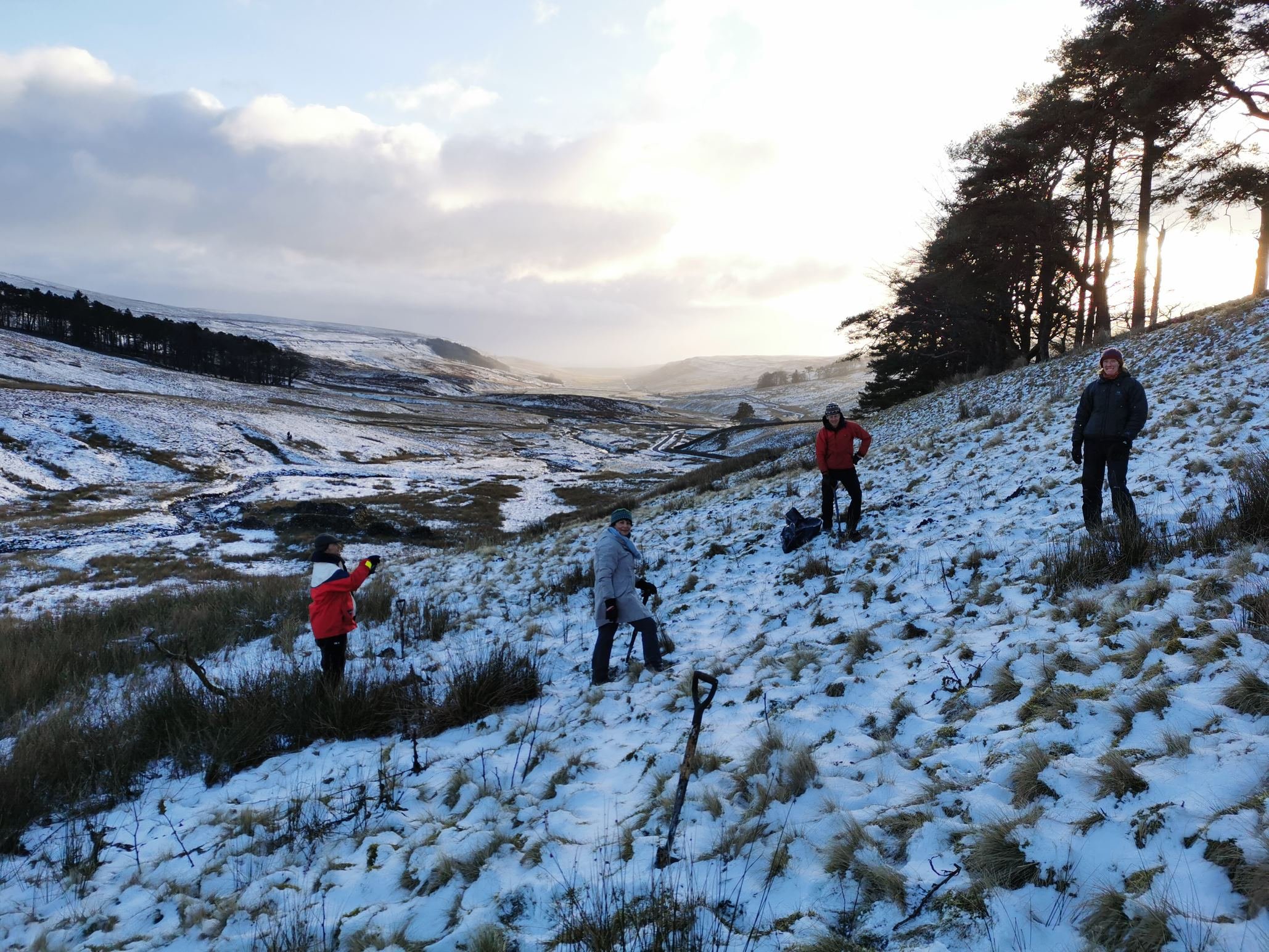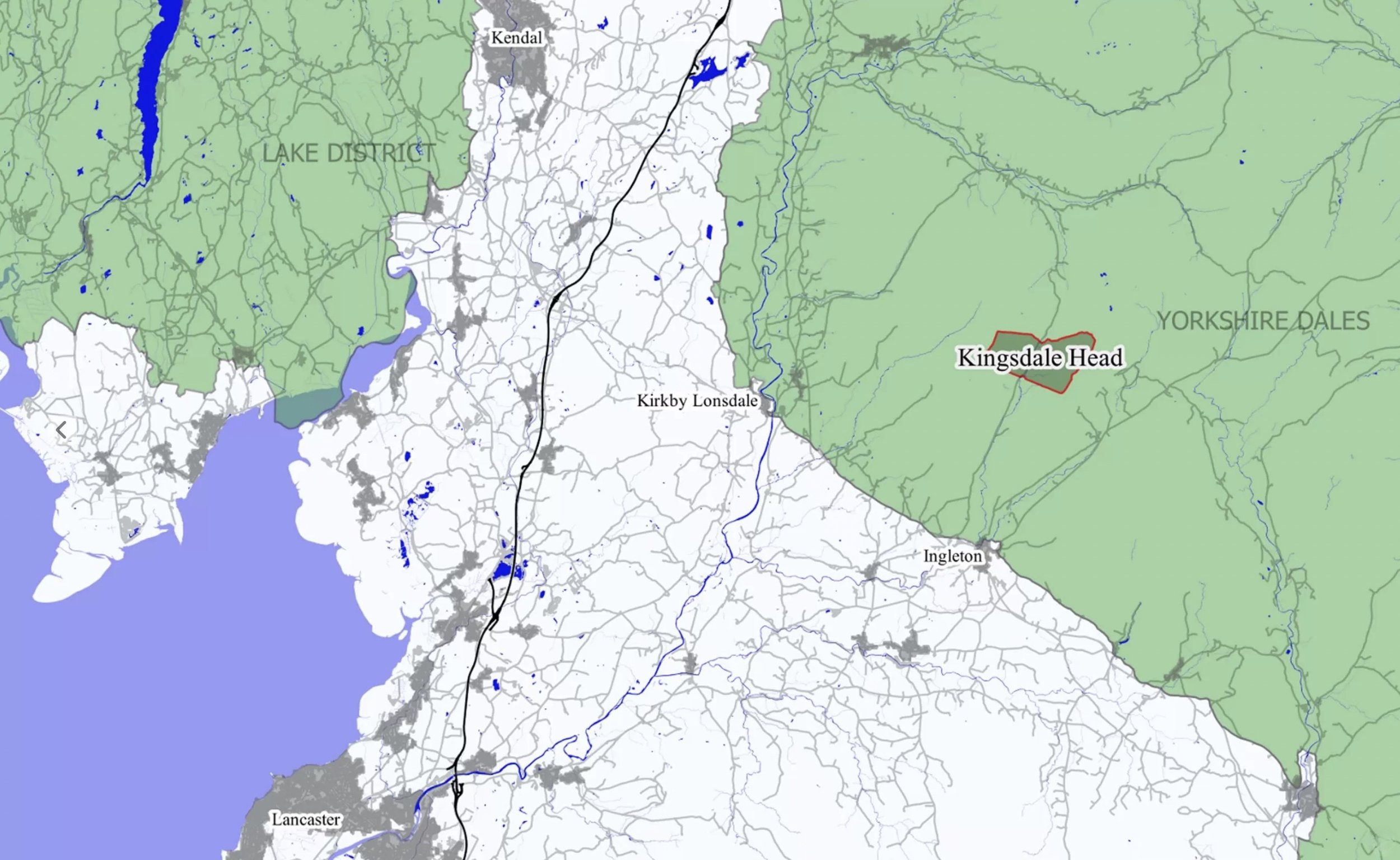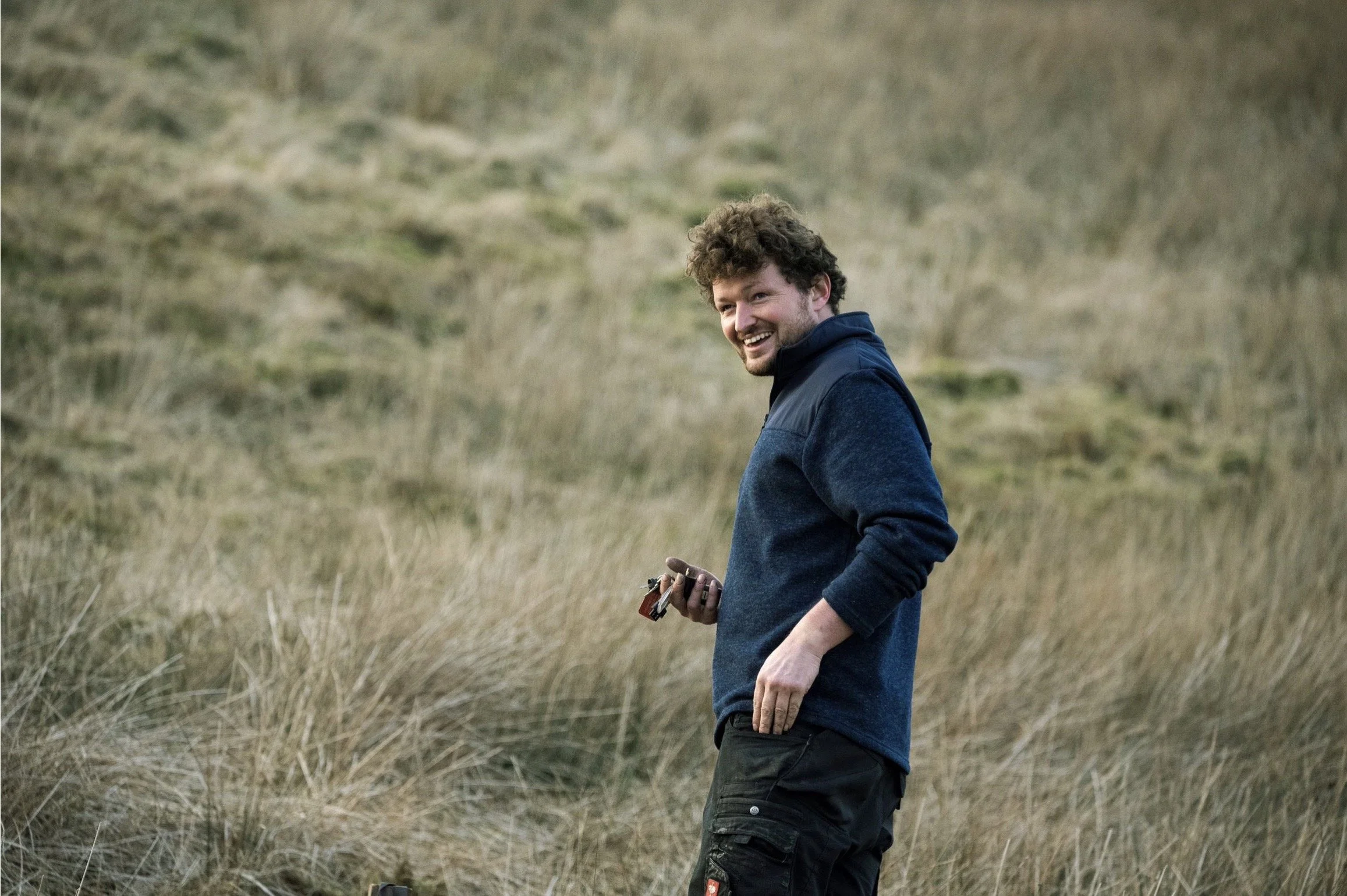
About
Kingsdale Head covers 1,503 acres (608 hectares) of dramatic upland landscape on the north west corner of the Yorkshire Dales. The farm encompasses the upper part of the valley of Kingsdale, rising to 700m (2,2296 ft) at the highest point, close to the peak of Whernside, one of the famous Three Peaks. It is the top of the catchment for Kingsdale Beck, which flows into the River Greta and then into the River Lune and on to the coast. Flowing streams and waterfalls are a defining part of the landscape, running from scree slopes, through peatland, woods and grassland to the valley floor.
We are at the beginning of a long journey to bring a greater diversity of life back into the landscape, as well as restoring the precious peatland, enabling it to hold more water and store more carbon. We are doing this using a small herd of cattle to change the impact of grazing, whilst also actively re-introducing more native shrubs and trees into the landscape. There is an extensive network of historic drainage channels across the peat and a major component of regenerating the moorland is blocking these channels to rewet the peat. During the summer of 2022 much of this work was completed working with Yorkshire Peat Partnership funded by the Nature for Climate Fund. This active approach to regeneration in the short term will also support more natural regeneration over a much longer timescale.
Ultimately, we envisage a mosaic of habitats across the farm where nature thrives– a place for people to enjoy and a farm with a diverse range of income streams that add up to a truly sustainable busines
Our Team
-

Catherine Bryan
OWNER
Catherine has been directly involved with biodiversity conservation and broader environmental issues since 2014. She is currently a trustee at Synchronicity Earth and the Environmental Funders Network and has been acting as an Advisor to Share Action on developing their biodiversity engagement with the finance sector.
-

Tim Yetman
OWNER
Tim has been supporting environment and conservation charities since he was a teenager, caring deeply about sustainability, biodiversity and resource use. He previously worked in the finance sector and is interested in developing alternative funding pathways that support sustainable land management.
-

Jamie McEwan
CONSERVATION MANAGER
Previously working at Yorkshire Wildlife Trust, Jamie has a background in wildlife conservation and has been involved in a wide range of work from peatland restoration and catchment based approaches to conservation grazing and broader engagement. Since school he has always had an interest in peatland habitats and a love of wilder upland places, gained growing up and studying in Scotland.
-
Amy McEwan
CONSERATION MANAGER
Amy grew up on a dairy farm in Shropshire and since studying Zoology at University has had a lot of experience in animal husbandry and welfare in farm settings as well as with wilder animals. Through her full time job outside of Kingsdale Head, Amy works in the farming and agricultural sector and is able to apply her experience to the farm at Kingsdale Head and the conservation grazing role of the cattle that live here.
Our advisers
Pete Leeson, Woodland Trust
Pete has been working in Northern England for the Woodland Trust for 26 years and advises on habitat creation with a view to restoring landscape function. His interest is in bringing together land managers and conservation objectives to achieve sustainable land management practice which is truly sustainable and which benefits everyone.
Sally Hempsell, Grazing Matters
Sally has been managing conservation grazing strategies for many years and operates Grazing Matters, which delivers habitat management in the form of cattle grazing on a range of SSSI sites, for private landowners and organisations such as the RSPB, Forestry Commission, Butterfly Conservation Trust, Cumbria & Lancashire Wildlife Trusts and Natural England. These sites are of national ecological importance, supporting many conservation priority species and habitat types. The sites have their own specific conservation objectives but they all rely on grazing as a conservation management tool to achieve objectives for habitat diversity and composition.
Nigel Pilling, Natural England
Nigel is a Natural England conservation adviser, with a particular interest in trees and wood habitats, especially in the uplands. Nigel has worked in nature conservation and applied ecology for over 20 years and tends towards a natural process led philosophy for ecological restoration.




